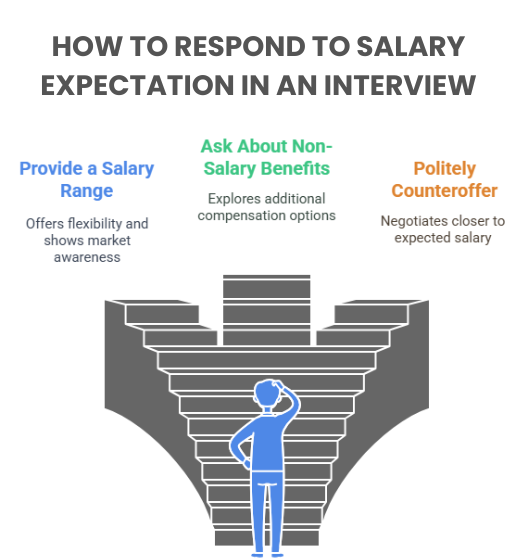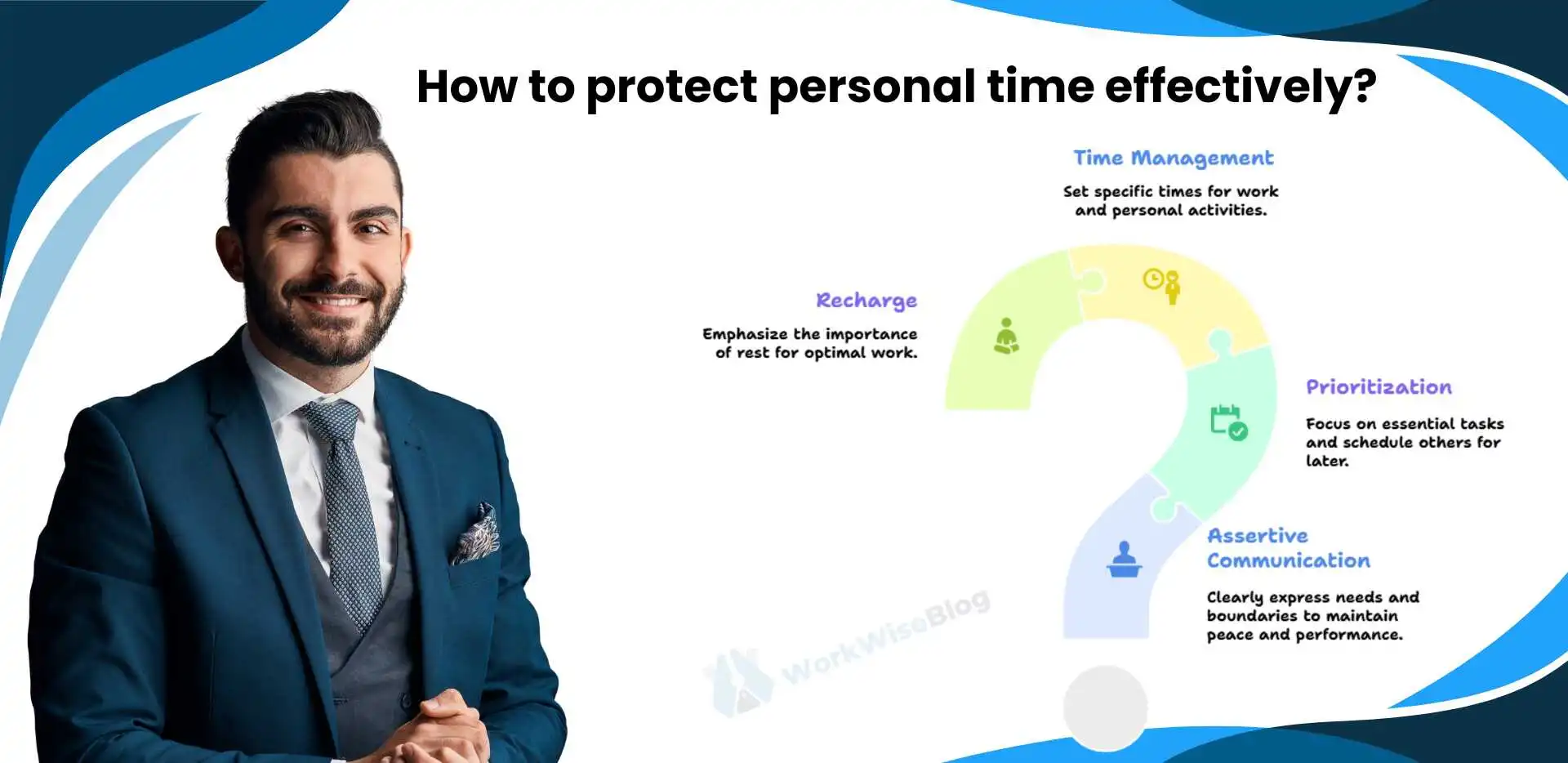
Why do Employers Need to Know About Salary Expectations?
Employers pose this query for various reasons:
- Budget Alignment – They have to confirm that your desired wage must fall within their pay range.
- Market Awareness – They wish to know if you are aware of industry salary norms for your experience and position.
- Flexibility in Negotiation – Employers determine if you are flexible or have fixed salary expectations.
- Hiring Efficiency – If your demands are way beyond their budget, they might make an early decision about whether to move forward.
Tip:
A Glassdoor survey finds that 68% of employees wish they had negotiated their salary. Being prepared to answer this question keeps you from getting shortchanged.

Step 1: Know Your Market Value Before You Interview
How to Research Salary Trends:
- Employ salary comparison sites: Look at websites such as Glassdoor, Payscale, and LinkedIn Salary.
- Examine job advertisements: Certain businesses include salary ranges in job advertisements.
- Interview professionals: Talk to colleagues who have similar positions about salary.
- Take into account location and industry: Salary differs according to cost of living and industry needs.
Example:
If you’re interviewing for a Marketing Manager position in New York, research may indicate that mid-level managers earn between $80,000 and $100,000. Having this information informs your salary expectations.

Step 2: Provide a Salary Range Instead of a Fixed Number
Instead of stating a single number, provide a range that gives room for negotiation while keeping you in a competitive position.
- Keep the range within market value based on your research.
- Your lowest number should still be acceptable to you.
- The highest number should be ambitious but reasonable.
Example Response:
“Based on my research and experience in [industry], I believe a salary range between $85,000 and $95,000 would be appropriate for this role. However, I’m open to discussing benefits and growth opportunities as part of the overall compensation package.”

Why This Works:
- You show flexibility without underselling yourself.
- You give the employer room to negotiate within a range.
- You reinforce that compensation includes benefits, not just salary.
Step 3: Be Confident but Open to Discussion
How you deliver your response matters. Confidence signals that you know your worth, while flexibility shows that you’re open to finding a mutually beneficial agreement.
Best Practices for Confidence in Salary Discussions
- Maintain eye contact and a calm tone.
- Frame your answer positively, even if their budget is lower than expected.
- Emphasize your value, not just the salary figure.
Example Response (If They Press for a Lower Salary):
“I’m excited about this role, and I believe my skills and experience align well with your needs. While my ideal salary range is $85,000–$95,000, I’d love to explore the overall compensation package, including benefits and growth opportunities, to see how we can make this a great fit for both of us.”
Why This Works:
- It keeps the conversation open rather than shutting down negotiation.
- It shifts the focus to total compensation, not just salary.
- It reinforces your enthusiasm for the role.
Step 4: Avoid Common Salary Negotiation Mistakes
Salary discussions can go wrong if you make avoidable mistakes. Here are the biggest ones to watch out for:
Mistake 1: Giving a Number Too Early
If salary expectations come up in early interview stages, try to delay your answer.
Instead, redirect the question back to the employer.
Example Response:
“I’d love to learn more about the responsibilities and expectations for this role before discussing salary. Could you share the budgeted range for this position?”
Mistake 2: Providing an Unrealistic Salary Expectation
- If your expectation is too high, you risk pricing yourself out of the job.
- If your expectation is too low, you might undervalue yourself.
Pro Tip:
Research industry standards before the interview so your expectations align with market rates.
Mistake 3: Saying ‘I’m Open to Anything’
- This makes you seem unprepared or unsure of your value.
- Employers may offer you the lowest possible salary as a result.
Better Response:
“I’m looking for a competitive salary based on my experience and industry standards. My research suggests that a range of $70,000–$80,000 would be appropriate for this position.”
Mistake 4: Being Too Rigid
- Being overly firm on a single salary figure may discourage negotiation.
- Some companies offer strong benefits packages that make up for slightly lower salaries.
Solution:
Stay open to discussing other compensation factors like:
- Bonuses
- Stock options
- Remote work flexibility
- Professional development programs
Step 5: What to Do If They Offer a Lower Salary Than Expected
If the employer offers less than your expected range, you have several ways to respond strategically:
Option 1: Ask About Non-Salary Benefits
“I appreciate the offer and the opportunity to join your team. I was expecting something closer to $85,000 based on industry standards. Are there additional benefits or bonuses that might help bridge the gap?”
Option 2: Express Interest but Ask for Time
“Thank you for the offer! I’d love to take a little time to review the full compensation package before making a decision. Could we discuss other benefits that might be included?”
Option 3: Politely Counteroffer
“I’m really excited about this role and the company’s vision. Based on my experience and research, I was expecting something in the $90,000 range. Is there flexibility to move closer to that figure?”
Key Takeaway:
Salary isn’t the only factor—consider growth opportunities, work-life balance, and long-term potential before making a decision.
Final Thoughts: Approach Salary Discussions with Confidence and Strategy
Discussing salary expectations doesn’t have to be stressful. When approached strategically, this conversation becomes an opportunity to showcase your professionalism, market awareness, and negotiation skills. Employers aren’t just looking for a number—they want to see if you understand your worth and can communicate it effectively.
Further Reading:
- Work Wise : Strategies for Answering ‘Where Do You See Yourself in Five Years?’
- Harvard Business Review : How to Answer “What Are Your Salary Expectations?”













